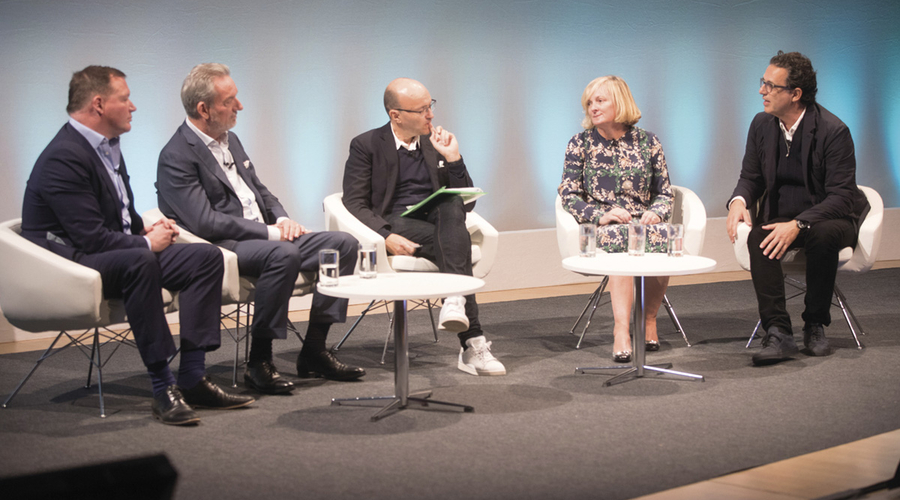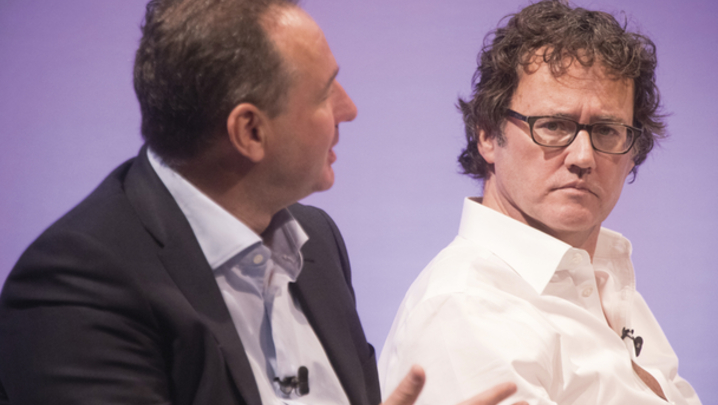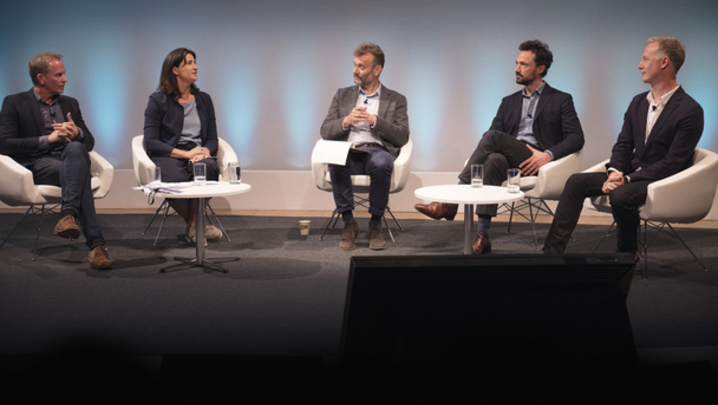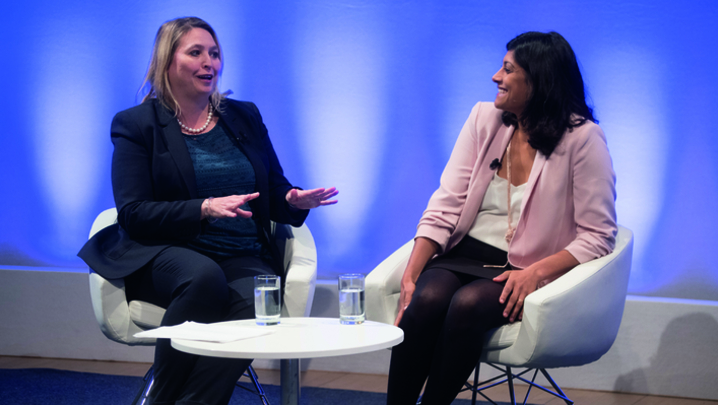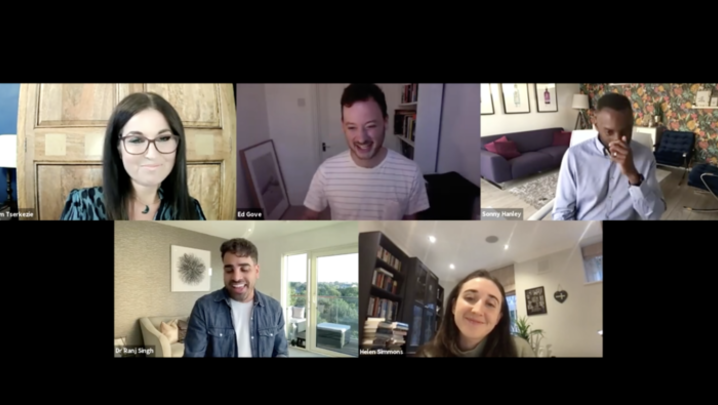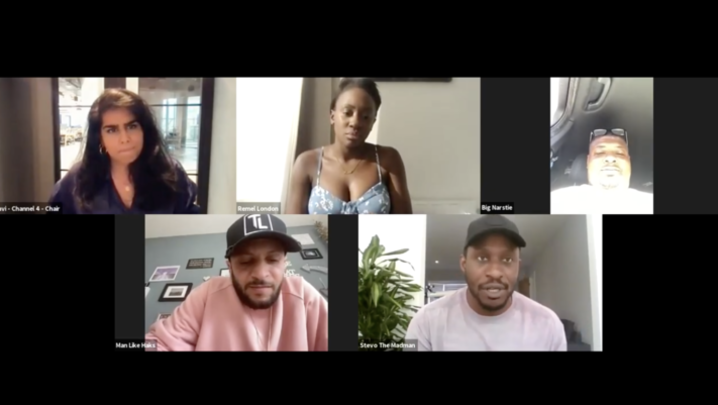Steve Clarke hears the industry’s leading figures predict what lies ahead in a world where the tech giants loom ever larger
Cambridge’s final debate is, traditionally, the time for the big beasts of broadcasting to strut their stuff. The 2017 convention duly delivered. Senior people from Channel 4, Sky, Virgin Media and Westminster weighed in on a range of hot topics.
They discussed some of the conference’s headlines: the Government’s determination that at least part of Channel 4 should relocate to somewhere outside London; the latest regulatory hitch in 21st Century Fox’s protracted bid for Sky; and British TV’s still patchy record on diversity, especially the ability to recruit and promote working-class applicants. It’s an open secret that executives from the elite courts of Oxbridge still dominate many TV boardrooms.
But the elephant in the room was the Faang companies (that’s Facebook, Apple, Amazon, Netflix, and Alphabet’s Google in investorspeak) – the seriously big beasts.
Whenever TV types assemble to take the temperature of their businesses these days, the Faangs are high on the agenda.
Session chair Tim Hincks put it like this. He suggested that, for the past two days, everyone at Cambridge had been having a ball. “But there’s this feeling that the really cool kids who were invited to the party haven’t come – Netflix, Google, Amazon, Apple,” said the erstwhile Endemol boss and co-founder of Expectation Entertainment.
“What makes it worse is that we’re talking about them all the time, and they still don’t come. I don’t know if they’re talking about us, but I suspect they’re not.”
How, for instance, would Sky react if it lost English Premier League rights to an online player?
Sky’s chief strategy and commercial officer, Mai Fyfield, said: “We’ve lost content before. We lost the Champions League [to BT]. You just adjust. You spend the money elsewhere and you spend it wisely.”
She added: “We tend to forget just how much money BT actually makes. BT is a much scarier competitor than Netflix in many, many ways. It is a much more profitable company than Amazon, as well. BT is a Goliath.”
In the UK, Virgin and Sky have different approaches to the Netflix challenge. Virgin includes the streaming service on its platform; Sky doesn’t.
Virgin CEO Tom Mockridge was upbeat. He outlined how his company continued to grow despite the competitive headwinds blowing from the western seaboard of the US.
“Fundamentally, we see it as opportunity because, at core, we’re a broadband/wi-fi supply company,” said the Virgin chief. “Whichever way you look at it, the demand on our network is growing at 50%-plus a year… and that’s compound growth.
“All the video is moving into an IP format for convenience, not only in on-demand but also in linear.” He added that this made it a much better environment for video producers. The number of opportunities would keep on growing.
“Netflix is now widening its portfolio [beyond drama],” explained Mockridge. “We’ve had a good relationship with it over four years. It is morphing much more into a big HBO.
“Whatever we think about it, it’s happening at a spectacular pace and we have to adjust. That’s inevitable. Sky will adjust, moving from satellite to broadband distribution.
“Linear TV will be fundamentally IP. Ultimately, it’s about more reach and more opportunities to view, which means more opportunities for people making TV.”
He added: “I work for a company called Liberty Global. We are consolidating cable systems across Europe and, increasingly, Latin America. John Malone [Liberty Global’s leader] is very, very focused on the scale of the big operators we’re talking about.”
As an industry, we do need to think about platforms that have no linear channels and it’s all VoD
Fyfield agreed – up to a point. The ubiquity of smartphones was good for her company’s bottom line.
“All Sky customers have access to Sky Go, which only exists because we have smartphones,” she said. “Video consumption is pretty much at an all-time high. The likes of Apple and Samsung have done a great thing for the TV industry.”
Hincks asked if Fyfield was alarmed by how much money Netflix and Amazon were investing in content for their services.
She thought this needed to be put into context: “People are overreacting a little bit. Facebook and Apple are talking about spending globally.”
The Sky executive continued: “Just because they look at content doesn’t mean they’re going to spend all that money on content. They’re going to spend money where they can make money back.”
She added: “Take, for example, Netflix. A massive company but relatively small in terms of its buying power in the UK. Sky’s revenue is not far off £12bn across all the markets we compete in. I would be surprised if Netflix’s UK revenue is half a billion. It is not about to outspend every single broadcaster in the UK. There’s room for all of us.
“I sometimes think we fall into a position of thinking it’s them and us. I don’t think it is. Netflix, Sky, Virgin and Channel 4 are all doing well.”
So that was that then? Not quite. As Hincks probed and asked Fyfield what TV might look like in five or 10 years’ time, she struck a more downbeat note. “The biggest issue is competition for the TV screen in the living room…They’re all kind of thinking: ‘Actually, where is video really being watched?’ Ninety per cent of video is still watched on the main screen,” she said.
“That is the next battleground and that is important for Sky and important for Virgin Media.
“But it’s also important for every single broadcaster in this room, because those other screens are not regulated. There’s no EPG regulation, no due-prominence regulation.
“Those platforms such as Apple TV, for example, are VoD-centric platforms. There is no linear TV on those platforms.”
So would Sky, perhaps, like more regulation, asked Hincks, his eyes visibly twinkling. “The problem is the fact that [the regulation] is not even,” said Fyfield. “Regulation is one-sided and has the potential to impact where the market goes.
“Markets should go in directions because of competition on merit, not because some are regulated and others aren’t. That’s dangerous.”
It was somewhat unusual for Sky, of all companies, to be calling for regulation, ventured Hincks.
“We’re calling for a level playing field. Some of it may be less regulation elsewhere,” replied Fyfield. “There is a role for some regulation in some places.… Regulating the tech giants is difficult. Maybe some of that is not possible.
“I think, as an industry, we do need to think about platforms that have no linear channels and it’s all VoD.
“What does that mean for commercially funded, advertising services such as ITV and Channel 4? That is a massive shift. And whether the kinds of revenues that ITV and Channel 4 have today, where the market is still anchored on linear, can that be sustained in a purely VoD world is a big, big question.”
David Abraham, Channel 4’s out-going CEO, claimed that Sky’s business model was just as vulnerable to competition from Netflix and Amazon as the free-to-air broadcasters.

He said: “I will take issue with the fact that your model is any more sustainable against the digital giants than our ad model.
“Certainly, the numbers, in terms of the penetration of ‘big basic’ in the UK and the unbundling of basic in the US, suggest that the massive premiums that your business model has been based on are now seriously in question. But, be that as it may, if one is a niche player with a strong brand and great creative teams producing brilliant content, brilliantly marketed, there is always a way to survive.”
Yes, Abraham was talking about Channel 4, which he said of late had achieved a 10% portfolio share in spite of fierce competition.
He added: “I think that the issue right now is about growth. The ad market is down and we don’t know when it’s going to recover.
“It’s going to have an effect on the amount of money ITV and Channel 4 spend on content. But we’ve been through these cycles before. We’ve got a great pipeline of strong shows.”
He continued: “The question is, ‘Where will we be in five to 10 years’ time?’ Talk to anyone in San Francisco or LA and there’s a tremendous sense of change happening. The volume of money that Amazon, Apple and Netflix are spending is having a structural effect at just the time that ‘big basic’ is unbundling across the US.
“Will mainstream TV still be culturally dominant in five to 10 years’ time? Absolutely it will.
“Will the growth rates be quite as good as they have been in the last few years? At the moment, that is less clear.
“In the UK, we don’t know how to detach the Brexit effect from the structural effects of some of these platforms.”
Where did Damian Collins, Chair of the Digital, Culture, Media and Sport Committee, stand on all this? Unlike his three fellow panellists, he had no commercial axe to grind.
Hincks asked Collins whether politicians should be radically rethinking what constituted the media market in the wake of the tech behemoths’ rise?
“In the past, we’ve asked, ‘How do we manage the BBC’s dominance in the UK market landscape?’ It’s secured by the licence fee – this huge budget it has every year that just arrives in the form of a cheque.
“But in 10 years’ time,” he mused, “we might we saying the BBC is struggling. It cannot run the range of services it runs with the licence fee at the level it is. It is struggling to raise commercial revenues, it can’t transmit the high volume of high-quality programmes we expect because there’s massive inflation in the market caused by external players.
“What would be the consequences for Sky if Amazon bought the Premier League rights? Or for Virgin if ITV said: ‘We’re not going to be a public service broadcaster any more. We’ll sell the rights to Coronation Street to the highest bidder and do our own thing, because we live in a world where being number three on the EPG doesn’t matter?’
“We don’t yet know what the consequences of all this change [will be] but we’ve got companies with almost unlimited budgets that can take investment decisions in television where they might not see any money back for six or seven years.
“For us to believe that this won’t have a massively disruptive effect.… I think this is bigger than the ability of any one national government to control.”
Few would disagree.
‘Session Fourteen: Seizing the opportunity’, featured: David Abraham, CEO, Channel 4; Damian Collins MP, Chair of the Digital, Culture, Media and Sport Committee; Mai Fyfield, chief strategy and commercial officer, Sky; and Tom Mockridge, CEO, Virgin Media. The session was chaired by Tim Hincks, Co-CEO, Expectation Entertainment, and produced by Sue Robertson and Martin Stott.
TV is struggling on social class
Sky’s Mai Fyfield said: ‘It’s something I, personally, feel quite strongly about. I think about it a lot when I recruit for my own team.
‘I don’t want a bunch of entitled people. I strive to hire people from a wide variety of backgrounds in terms of social class and education. People who’ve had to fight a little bit to get where they are tend to do very well at Sky.’
Tim Hincks asked if she had data and targets on social backgrounds? ‘No,’ replied Fyfield, ‘[because] how do you capture data on social diversity? I think that’s quite hard. But it’s a challenge that the whole industry has [to think] about.’
David Abraham said: ‘Channel 4 is focusing on how to ensure millennials get to positions of influence and decision-making more quickly.
‘I think it is a fabulous thing that Channel 4 and ITV will now be led by women. It will have a big effect on inspiring the new generations coming up, because they can see people at the top not coming from the usual background.’
Tom Mockridge said: ‘In the UK, class is a big issue for panel discussions, but I don’t find it’s much talked about in the workplace. The broader issue of economic class is something much deeper for society to deal with as a fundamental point of politics.
‘In terms of getting a wide range of people working in our industry.… I’m a believer in quotas. I’d rather set a hard target. We have targets, but I am not allowed to reveal them.’
He added: ‘In the UK, social class was much more evident 30 to 40 years ago. If it does [still] exist, it should be addressed. I think it’s more about this question of elites. Clearly, you do have an Oxbridge elite. In business here, if someone has been to Oxbridge, they let you know within 20 minutes of the conversation starting.’
Should Fox’s bid for Sky go ahead?
‘I look at this argument about scale, and I see mergers happening right, left and centre but, when I see the scale of the digital giants, my strategic question is: “Is any amalgamation of existing legacy media companies ever going to match the scale we are now confronting?” asked Channel 4’s David Abraham.
Virgin’s Tom Mockridge said he thought ‘James [Murdoch] handled it very correctly yesterday, as did Karen Bradley. It is very clear she is proceeding cautiously. That is her right. There is a process, and you can be confident that the CMA will be very objective and thorough.’ He said he thought the deal should be approved.
Session chair Tim Hincks wondered if, ‘after certain amount of time, [would] Fox say: “This is costing us a lot of money, we can’t wait for ever”, and therefore abandon the bid.’
Sky’s Mai Fyfield said that was not going to happen, adding: ‘The uncertainty is clearly unwelcome but we’ve been here before. Everybody at Sky should keep focused and keep getting on with the day job.’
Hincks probed: ‘How much is it to do with the baggage that any business accumulates over time, and so, for the Secretary of State, it just doesn’t feel right?’
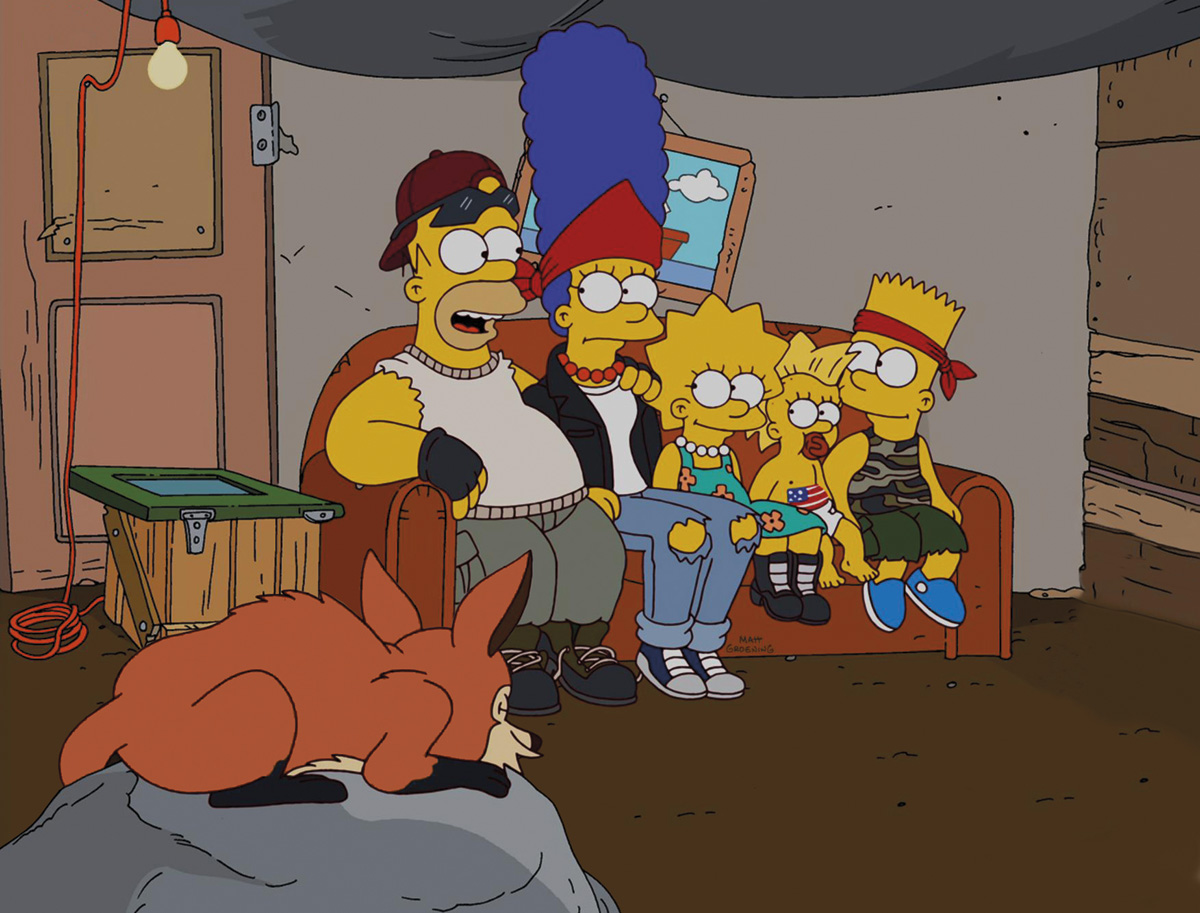
Fyfield responded: ‘There’s always been baggage around the Murdoch family. Sometimes, that rubs off on Sky.’
‘So, was the Conservative Government, which lacks a majority, playing politics by rejecting Ofcom’s advice?’ asked Hincks. ‘Was there a feeling that, in the past, the Murdochs were far too close to the Tories?’
Damian Collins MP said: ‘I think Karen [Bradley] is being extremely careful to do everything by the book.’ He continued: ‘Some people might wonder why these issues on broadcasting standards were not looked at initially.… Ofcom should probably have looked at those issues more closely, earlier in the process.
‘That would have made the whole thing a lot smoother. We were expecting a referral to the CMA on plurality grounds, anyway.’
He stressed: ‘Sky is a very successful company. It’s not that we’re looking at this deal and saying Sky is in desperate trouble and desperately needs a new buyer to keep it running, and time is of the essence.’

